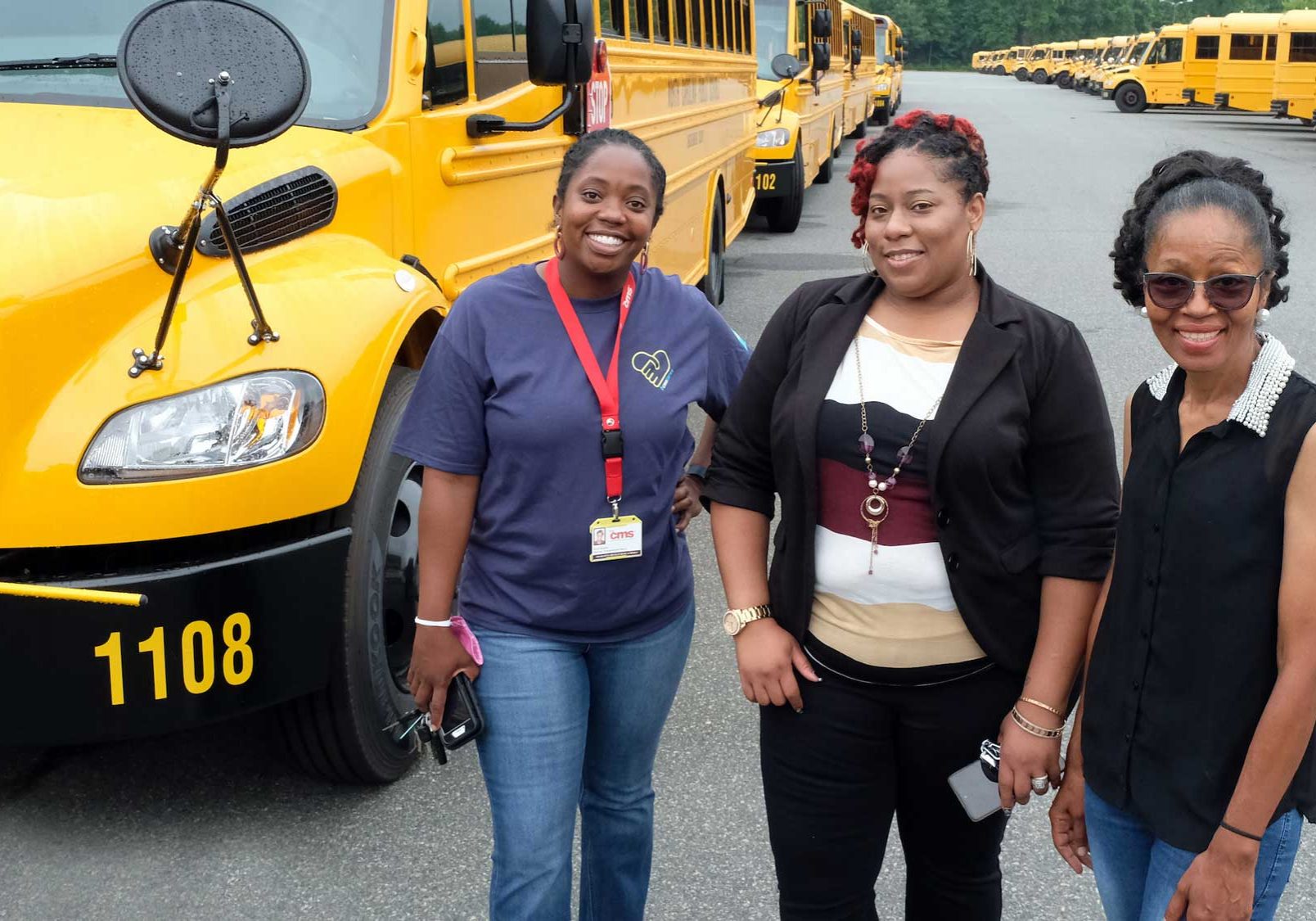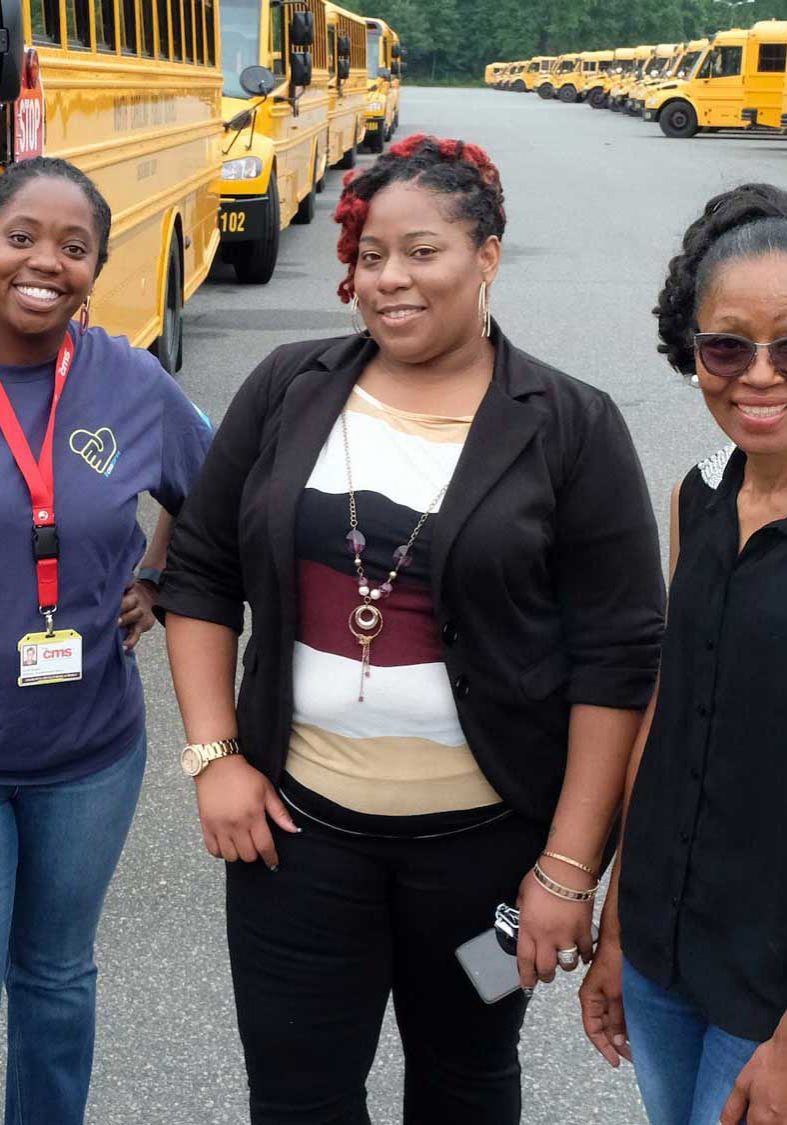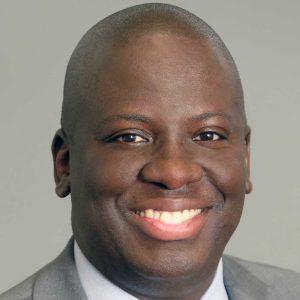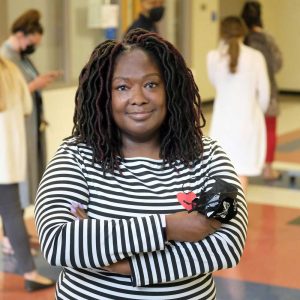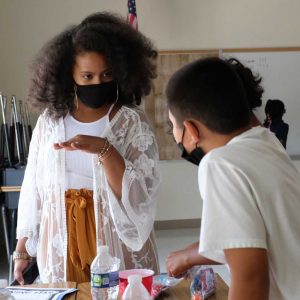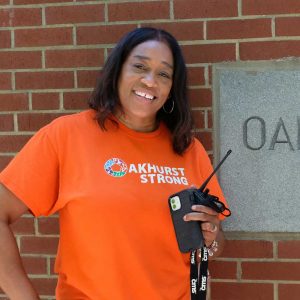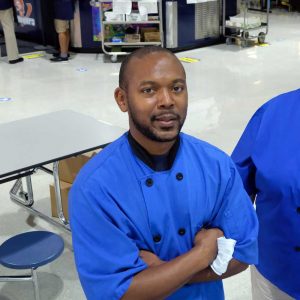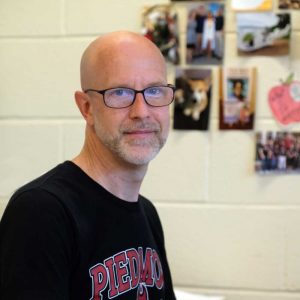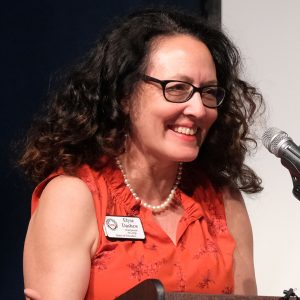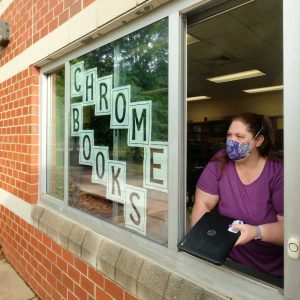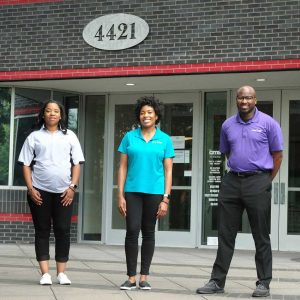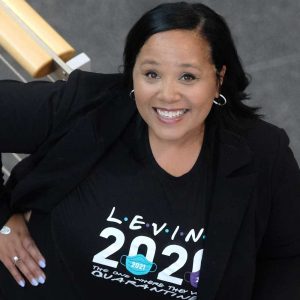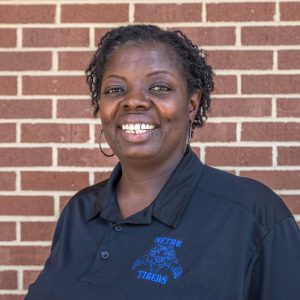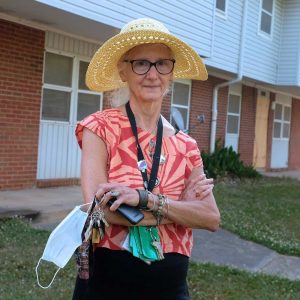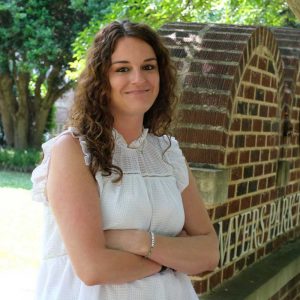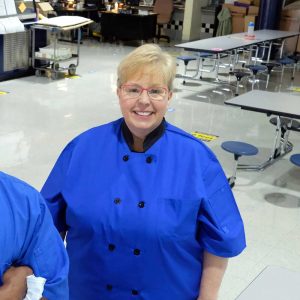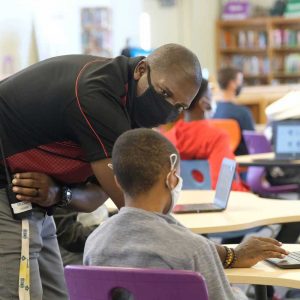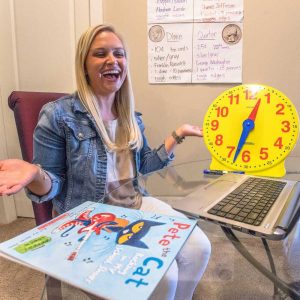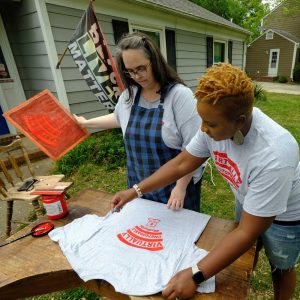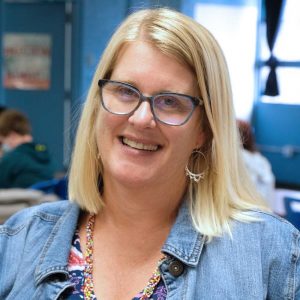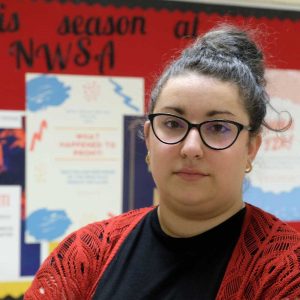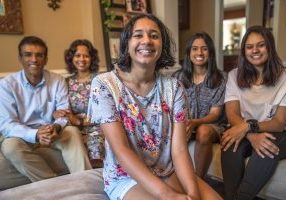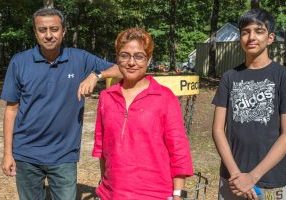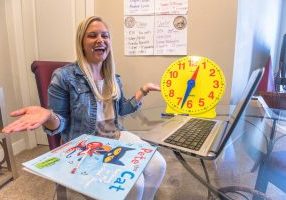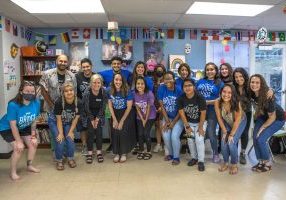We Were Rolling
"We want to make sure when that time comes and it's time to hit the road and go get these babies that we can do it."
Kristi Harden
Erica Rankin
Angela Knotts
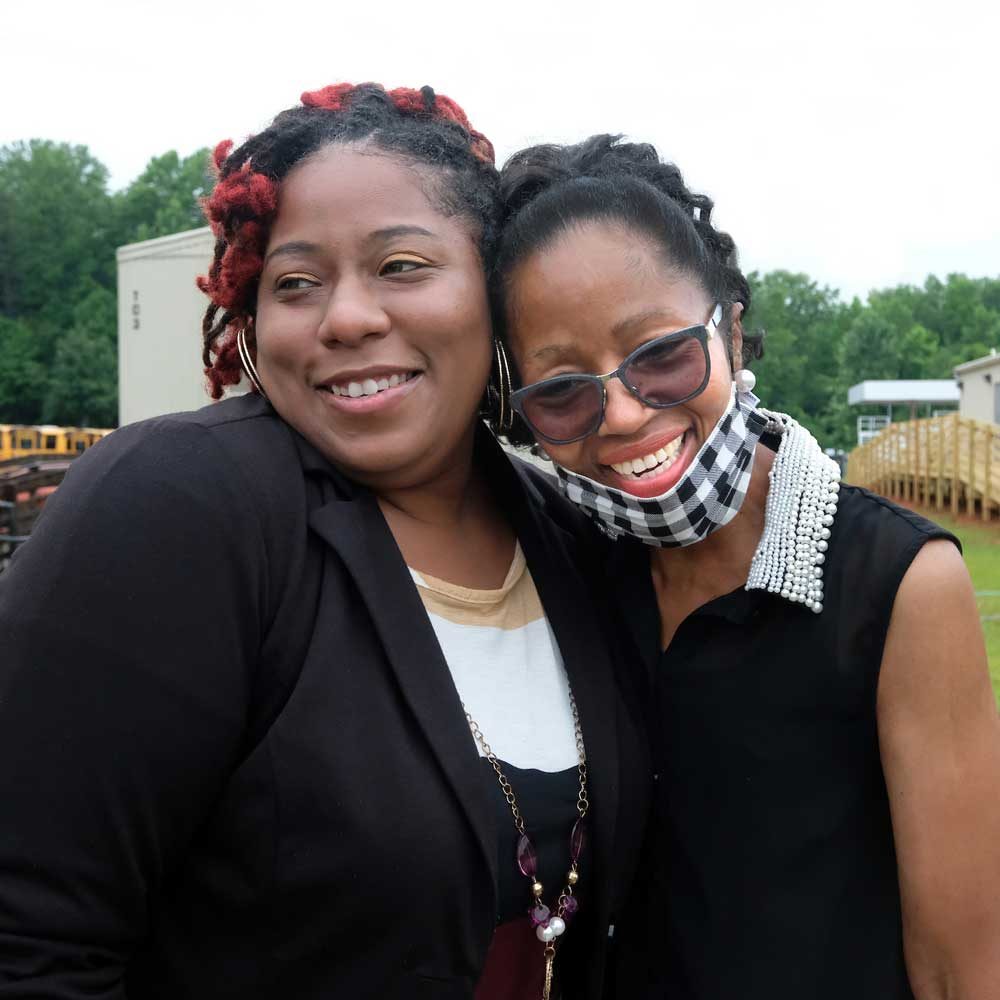
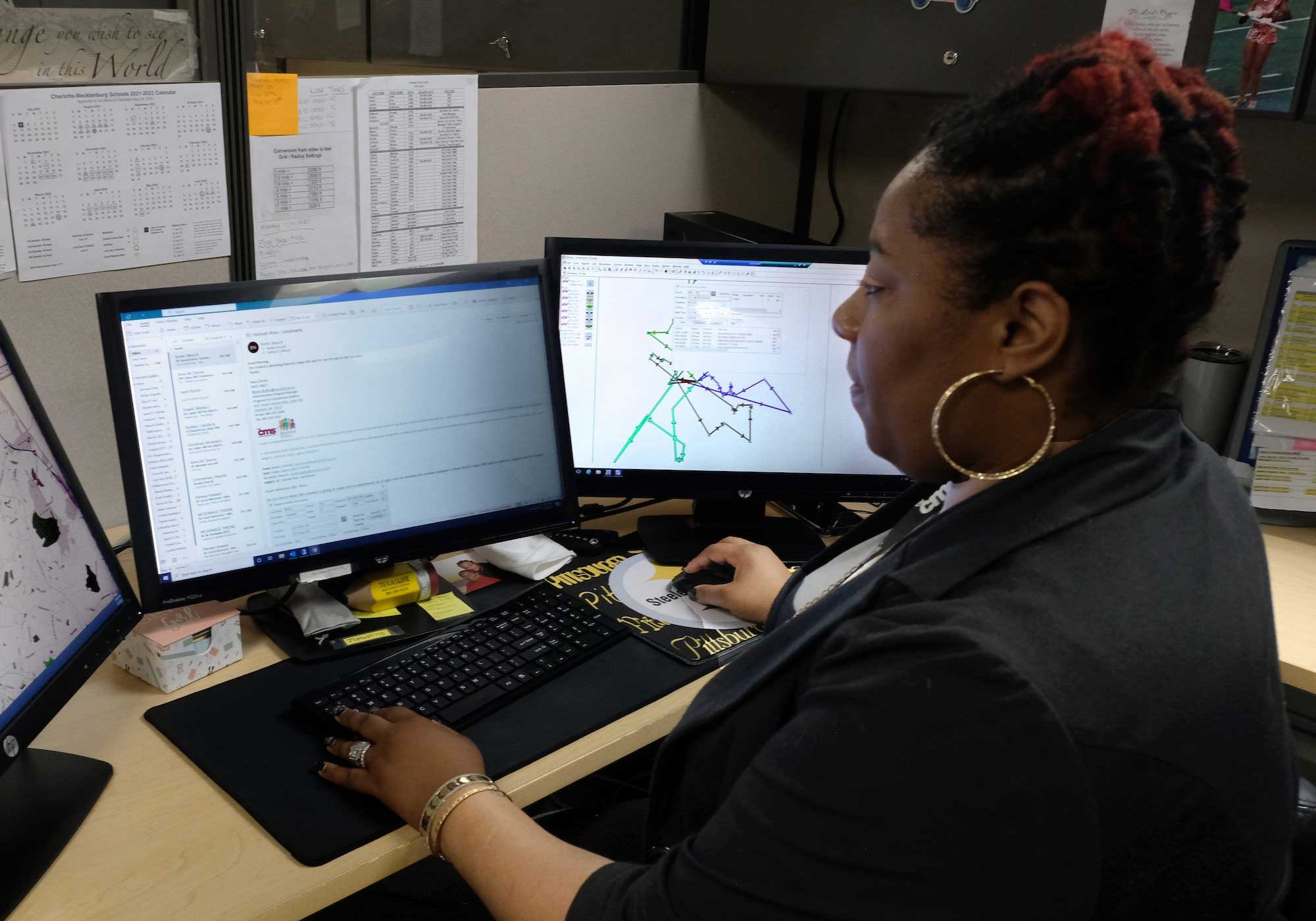
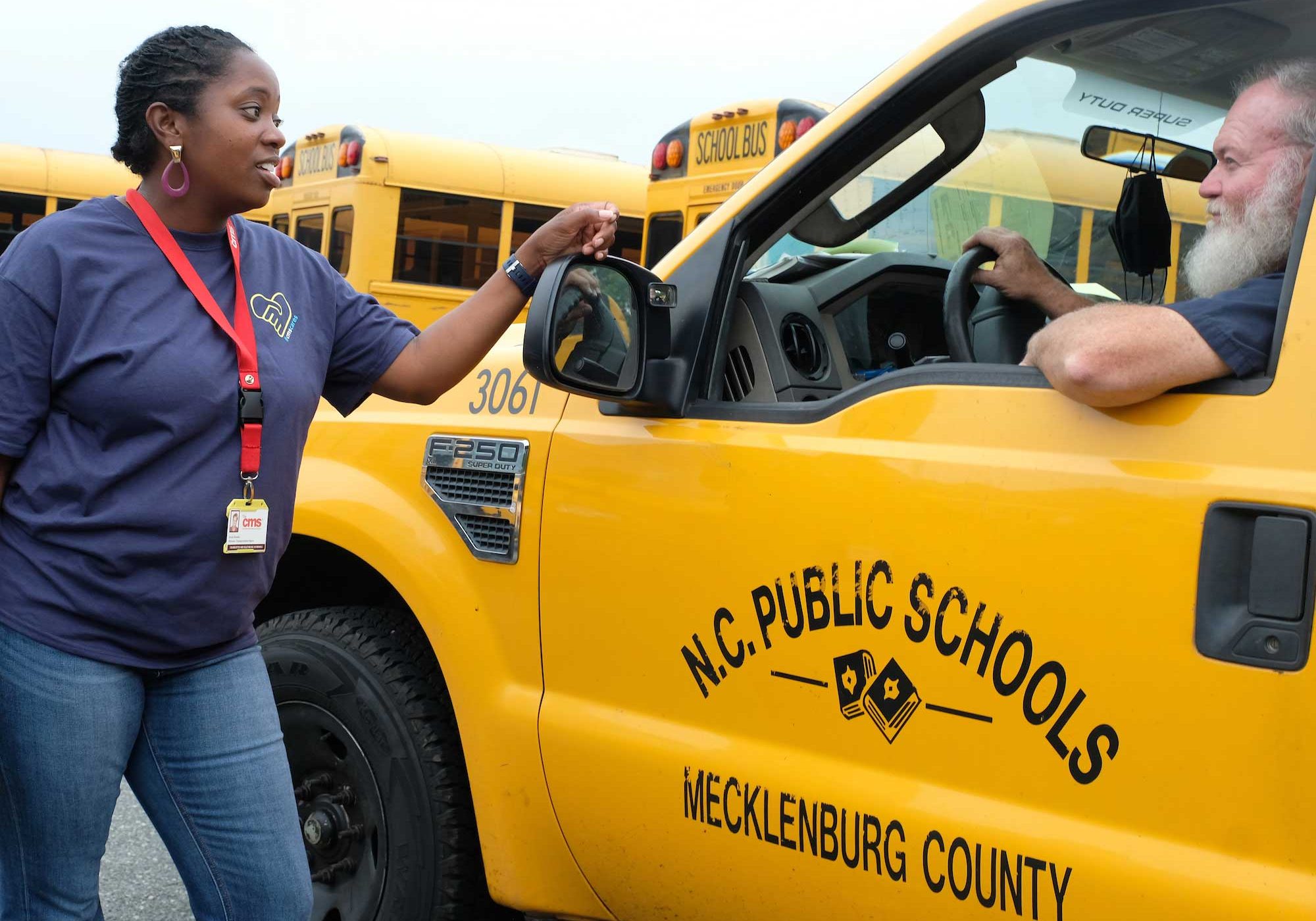
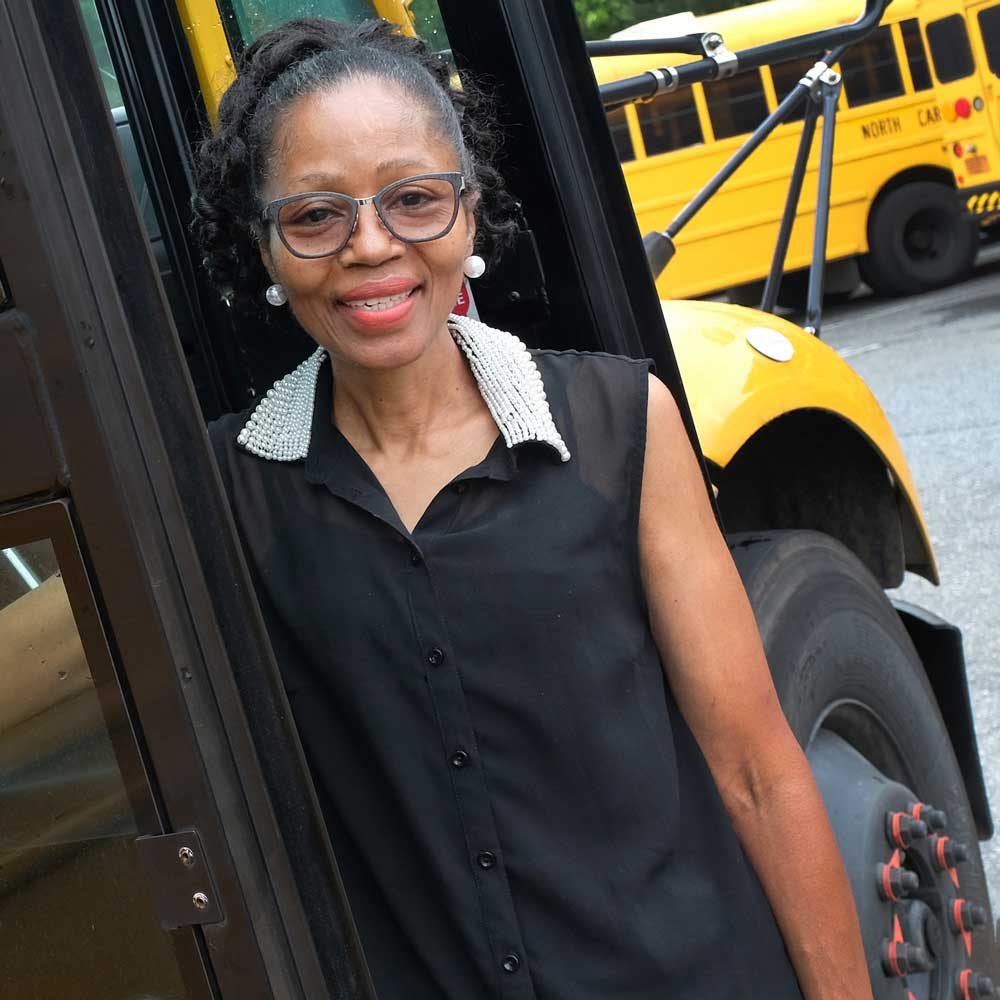
Kristi Harden, Operations Director
I think about when we first went home, I was thinking, “Oh, it'll just be a few days.” But then as the different messages were coming, it started to kind of sink in that, oh my goodness, we're going to be home for a minute. So then it kind of shifted into, okay, how are we going to keep people working? How will we make sure our drivers have work? You had drivers calling like, "Ms. Harden, what's going to happen? How do I do this?" I think at that point, people were really scared. Not to mention you got this virus that's going on that we really don't know a lot about, you know, people's families were being impacted. People were getting sick. It was a really scary time.
We had board members and people who were making masks at home, because remember, there were no masks, there wasn't PPE. We had a small group of drivers that were delivering food, like on a smaller scale, but there was no PPE. There were community members that were making masks. We were driving around, they were leaving the masks in these secret places, you know in tubs, because you didn't want to touch anything. I think there was like this running Google Doc where they would put in where we could go and pick up masks. We were taking them to Stafford Drive (a CMS Operations facility) and School Nutrition because the school nutrition people were working. I think next it was the technology runs because we had a number of students that, you know, they weren't able to get their technology. And then there were the hotspots. So then we employ more drivers to go. And we were delivering technology. The next run we were delivering school supplies to kids, like textbooks. I mean, we were going, we were pulling teams together. And I'm not sure at that time if we could even use drivers...I think drivers were designated with that leave they (CMS Human Resources) had allocated, so we were pulling from anybody in our department that had a CDL (commercial driver’s license). We were out literally at schools, gathering textbooks. Like we were going around packing their bags and then we would get on buses and we head out to the neighborhoods. Some of those kids, ‘cause they were at home too, they were so excited to see us. I mean they were excited. I mean, we were down in parts of Charlotte that I didn't even know existed. Now that part I did enjoy it. It was a little tiring. But to see those kids, I mean, it was, it was just a reminder, you know, sometimes you would just get stuck in thinking about how it has impacted you individually. But then to see, you know, this thing is having a big impact, and it's bigger than me. It's bigger than my little problems, like, we’ve got some work to do. So I mean, that kept us going.
We were traveling to Richmond County because we were preparing for multiple runs because in order to social distance, we knew it would put more buses on the road. We were traveling to small counties where Johnson (Adam Johnson, CMS Executive Director of Transportation) had purchased their “for sale” buses. We did Richmond County, Asheville, we went to three different places and I mean, we were getting their old buses and driving them back. I mean it never stopped. It never stopped. We were planning for the opening of school, but then that got pushed back so then we transitioned to CMS Eats at Home. We were pulling all that together and getting the drivers together, figuring out what that would look like. And then we transitioned to EC (Exceptional Children) coming back. And from there we rolled into Pre-K and then we hit another kind of pause in January. But then we brought EC back and from there, you know, we've been able to roll on more and more and it's just feeling a little more normal. But you know, we were rolling.
We're doing it for these students. We want to make sure when that time comes and it's time to hit the road and go get these babies that we can do it. Our drivers dragging in here, yes, scared. We hear from them, they're scared. They're worried they've got their own health conditions. But guess what? We're going to get these kids, you know? And I think that for me, knowing that that's the group of people that I work with every day, it's like, yeah, I can keep doing this work. This is important. This is important work. And we're going to get it done. Looking back on it now, I just have to celebrate that Transportation team. And I mean, from the routes to the drivers to, I mean, just every piece of it. Like we, we have been able to come together, stay together, you know, and just keep it about these kids.”
Erica Rankin, Routing Specialist:
When we first went home, we were actually in the middle of building our runs and routes for the following school year, not even knowing what that really was about to look like. We're just building our runs, as if it's a normal school year. And so many challenges came with that. Because those runs had to be ripped to pieces so many times. We started off like we would normally do, pack our buses out, having maybe two kids sitting per seat. We had to change that so many times ‘cause it went from one child per seat, one child per every other seat. We had to change the numbers so many times on the buses. I love puzzles. And I really feel like that's what helps me. It’s a huge puzzle. And it's like working with so many different pieces.
Some of our children we actually had to, it's sad, but we had to disappoint them with not being able to do daycare stops when they returned because we had so many daycares that started closing on us and we are transporting kids to the daycares and we get there and the daycare is like, ‘I'm sorry, we had an outbreak. We can't take them." So we were having kids on the bus and now we have to contact parents, "We’re sorry but we can't take them because daycares started shutting down." So that was a huge adjustment to our runs because we have so many daycares we service. So many YMCAs we service that weren't in the equation anymore this year. Once we were ready to roll with one product (run), we were told, “Okay, things have changed. We no longer can have twenty kids per bus. We now can only have ten kids per bus,” and then it would get pushed back again. And it's like, oh, things have changed again. We can now have twenty kids on the bus. And even outside of that, we were still building runs for technology, making sure that the kids received their Chromebooks, making sure they had chargers, making sure they had the hotspots. And then we had to do other runs outside of that to make sure the children were eating.
The other thing that was challenging was losing coworkers due to this pandemic. That was very challenging. Not to be able to talk to these people that you normally talk to on a regular everyday basis and knowing that you won't be able to even see them again. That was very, very challenging for me. At a lot of your schools, you have contacts that you normally talk to. Certain staff is kind of delegated to transportation, some handle registration, things like that. At one of my schools, I had a team of three to handle transportation and I could call them and say, ‘Hey, put the child on the bus, we got them assigned,’ or ‘Hey, tell me what that child's name is and I can help you get them on the bus now.’ Whatever we needed from that school, that was my team. I could call them and we’re going to make it happen. And, unfortunately, I lost all three. So I had to train other staff members, even the principal, with how to now work the transportation system to get kids assigned.
I’m stronger than I thought I was. Everybody, especially moms, moms are always on the go. You work, you go, you get off, you do this, you run soccer, you run to the school, but being able to be home and still work and have as much work as we did, because the workload tripled. So having a heavy workload and still being able to be at home with children, and having to teach children and help children, it taught me that I could do some things that I didn't think I could do, like teaching. Teaching wasn't for me, but hey, it became something that I love.
My team is more of a family than I ever really knew. When we're here with each other, of course we check on each other, but being at home and not being able to see each other and to get a phone call to say, "How are you? How is your family? Do you need any help on your end? I'm done with my work. Can I help you out with yours?" I learned and I see how strong my team was because we couldn't have done it without each other. Like, the workload was too heavy. We couldn't have done it without each other.
I would tell parents and students that the pandemic was new to all of us. I just would want them to know that we really appreciate the patience because it wasn't something that you can just throw together in one day. But in some situations we had to make it work. And so just the patience from students and parents, we can't say thank you enough.
Angela Knotts, Bus Driver:
When the buildings closed. I was thinking about the students. I also was thinking like, some students need that time, that in-person time in class. How long are they going to be out? I was really concerned about them. I didn't know whether we were going to work tomorrow or how long we were going to be out. Were we going to get paid or am I going to pay my bills like I normally do?
We had to be safe. On each route, I always wipe down the seats and whatnot. And I had wipes for the kids to wipe their hands. Also, swept the floors and wiped the floors down, the whole nine yards, to make sure everything, each child would be safe from COVID-19. It was challenging. It was challenging because, you know, you got to always remember your mask. And they had to always remember to sit separately. It's a lot. It's a lot, but you know, they did pretty good. And in the afternoon sometimes when they get all happy to see their friends, then they might get out of their seat a little bit, but I remind them and they get back, they get back in and they stay, they stay in their seats.
I just want to say that I thank God that we got our life. We had a job, we had our families. CMS came through, they educated the students, they gave meals out. They’re moving forward, they’re still moving forward. We had some bumps in some roads, bumps in the road, but we, we still were successful. We pulled together the way we did as a team. And our heart was in there. And one other thing I want to say, when we took those meals to those kids, they'd be waiting at the bus stop. They have a smile and they were so happy and it just brought joy to me, you know to see them so happy about it.
- Kristi, Erica & Angela
